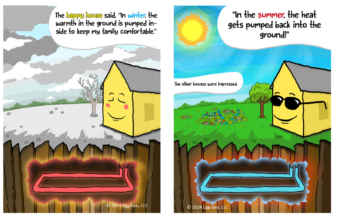With the appointment of a U.S./Canadian Consensus Committee, the International Code Council (ICC) and CSA Group announce the start of a project to develop the new CSA/ICC 805 Rainwater Collection System Design and Installation standard. The 18-member ICC/CSA Rainwater Collection Design and Installation Consensus Committee, made up of nine U.S. representatives and nine Canadian representatives, will create the standard that will ensure the basic safety and performance of rainwater collection systems. The standard will be developed in accordance with both ANSI and Standards Council of Canada accreditation requirements for use throughout North America.
“The Code Council is committed to the safe use of rainwater and support for growing the industry through codes and standards development to protect water resources,” said ICC CEO Dominic Sims, CBO. “We are pleased to be working with the CSA Group to develop this important health and safety-related standard.”
ICC’s International Green Construction Code (IgCC) addresses rainwater harvesting and is used as the basis for an appendix in other codes. The groundbreaking revision to ICC’s 2015 International Plumbing Code contains comprehensive, non-potable water provisions in a new chapter covering rainwater, gray water and reclaimed water.
CSA Group has embarked on a number of related standards projects, including CSA B126 Water Cisterns. This joins the CSA B128.3 Performance of Non-Potable Water Treatment Systems standard, which specifies water systems requirements for treating gray water or waste water for reuse in other applications.
“Developing standards solutions for more sustainable homes and buildings across Canada and the United States is an essential element toward a more sustainable future,” said Bonnie Rose, President, Standards, CSA Group. “Rainwater collection systems that are designed and installed properly according to this joint, multi-national standard will help ensure that people are protected from health hazards that could arise from substandard systems.”
Development of the standard began two years ago with a Project Initiation Notification System (PINS) with the American National Standards Institute filed by the Code Council. ICC and CSA announced their intent to develop a joint U.S./Canadian standard last April.
“This standard is especially important for regions that experience water shortages, and storm water management and water quality issues,” said Code Council Board of Directors President Stephen Jones, CBO. “Many jurisdictions are seeking an industry standard to help them develop guidelines that work with their existing building codes.”
The ICC/CSA Rainwater Collection System Design and Installation Consensus Committee will hold its first meeting April 9-10, at the Hyatt Regency O’Hare in Rosemont, Ill. The purpose of the meeting will be to elect committee leadership, establish task groups and begin work on the standard.
For more information about the standard’s development, contact Shawn Martin (smartin@iccsafe.org) at ICC or Lauro Pilla (lauro.pilla@csagroup.org) at CSA Group.
The International Code Council is a member-focused association dedicated to helping the building safety community and construction industry provide safe and sustainable construction through the development of codes and standards used in the design, build and compliance process. Most U.S. communities and many global markets choose the International Codes.
CSA Group is an independent, not-for-profit membership association dedicated to safety, social good and sustainability. Its knowledge and expertise encompass standards development; training and advisory solutions; global testing and certification services across key business areas including hazardous locations and industrial, plumbing and construction, medical, safety and technology, appliances and gas, alternative energy, lighting and sustainability; as well as consumer product evaluation services. The CSA certification mark appears on billions of products worldwide. For more information about CSA Group visit www.csagroup.org.




Join the conversation: